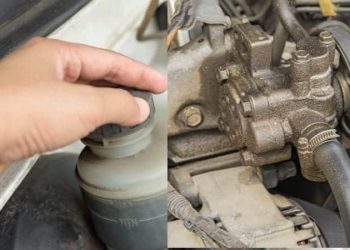While having insurance is mandatory for using your car on Indian roads, which one you choose depends on you. You can either stick to the basic third-party insurance or opt for the more exhaustive comprehensive insurance. If you want to widen the scope of your comprehensive coverage, you can invest in relevant add-ons based on your needs and budget. One such add-on is the zero depreciation cover. Many people often confuse zero depreciation in the car with comprehensive coverage. However, they are two very different things. Let’s look at them in detail.
What is comprehensive insurance?
In the face of a mishap, comprehensive insurance covers both own damage and third-party liabilities. Although comprehensive coverage is not mandatory, it is essential in securing your finances in case your car faces considerable damage in an accident. Comprehensive car insurance saves you from third-party claims and pays for the damage to your car due to fire, natural disasters such as floods and cyclones, and accidents. For example, if your car is damaged in floods, your insurer will pay for the cost of repairs. In case of total damage, you will be given the amount equivalent to the Insured Declared Value (IDV) of your car.
Features of comprehensive insurance policy
- It is an all-encompassing insurance product that offers third-party coverage and additional coverage for own damage.
- It covers third-party liabilities such as unintentional harm, loss of life, and/or property damage.
- Insurance coverage for expenses resulting from losses brought on by riots, fires, floods, and other manmade and natural calamities.
- Coverage in case your four-wheeler is stolen or irreparably damaged.
- You can get your car repaired at a network garage without paying anything out of your pocket.
- You can widen the scope of coverage by buying additional riders based on your needs.
How depreciation affects comprehensive insurance
A comprehensive car insurance policy covers own damages caused to an accident or other events. However, be aware that your insurer will not pay the full cost of repairs and there will always be some deductions citing depreciation. Insurers consider depreciation, which is the general wear and tear of the vehicle, into account when settling claims.
Depreciation is the decrease in an asset’s value brought on by normal wear and tear over time. For instance, the price of the car’s parts will decrease after a year because of usage.
As a result, you will get the claim settlement amount after the depreciation amount is deducted. To eliminate the depreciation computation, you must purchase the zero depreciation in car add-on.
What is zero depreciation in a car?
With zero depreciation in car add-on, you enjoy claim settlements without taking depreciation into account. It means you are not charged for the depreciated value of certain car parts. If a car part is to be replaced, its initial cost will be considered. You receive a better claims pay-out in this manner. Zero Depreciation cover is also known as Nil Depreciation or Bumper-to-Bumper coverage. The term “Zero Depreciation Policy” refers to comprehensive insurance with zero depreciation in car add-on.
Things to keep in mind when buying a Zero Depreciation policy
- It applies to new vehicles only
You must first check to see if your car qualifies for zero depreciation insurance. This is because such insurance is offered for vehicles that are less than three years old. As a result, if your car is older than three years, you cannot opt for this policy.
- Increased premium
The premium for comprehensive insurance with zero depreciation is more compared to that for a regular policy. This policy is typically 15% to 20% more expensive than standard policies.
- The number of claims is restricted
There is a cap on the number of claims that can be accepted under zero depreciation. Since the number of claims differs from company to company, it is essential to validate this with your insurer.
Comprehensive insurance vs. Zero Depreciation insurance
Amount of premium
- A comprehensive policy with zero depreciation in a car is more expensive than typical comprehensive insurance.
The age of the covered vehicle
- As your car gets older, you cannot buy a zero depreciation policy to cover it. Usually, cars older than three years are not eligible for this policy due to increased depreciation costs. However, you can enjoy the benefits of comprehensive insurance as long as you pay for it.
Amount of a claim settlement
- You get a higher claim settlement amount with Zero Depreciation insurance, as depreciation is not considered when settling claims. With comprehensive coverage, you get the claim settlement amount after deducting the depreciation cost. Comprehensive insurance considers the cost of car body parts that need repair or replacement.
Repairing plastic components
- Plastic components are not subject to depreciation if you have a Zero Dep add-on. However, if you have a comprehensive policy without the zero depreciation add-on, approximately 50% of the depreciation on such parts will be taken into account at the time of claim settlement.
Conclusion
As you would have noticed already, comprehensive insurance and Zero Depreciation insurance are two different things. While zero depreciation is a form of extended coverage, you cannot keep buying it indefinitely as you can purchase comprehensive insurance. However, it is advisable to invest in zero depreciation in car for as long as you can, as it will help you save big money in the time of need.
Disclaimer: The above information is for illustrative purposes only. For more details, please refer to the policy wordings and prospectus before concluding the sales.





